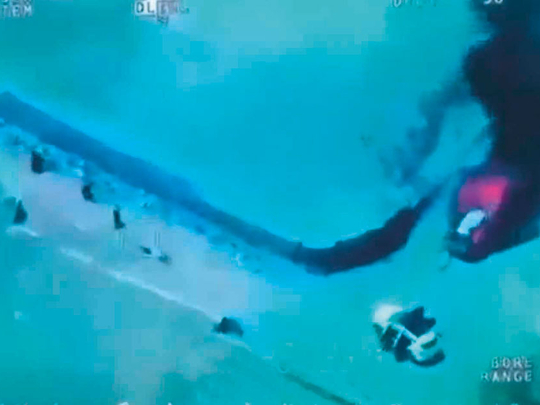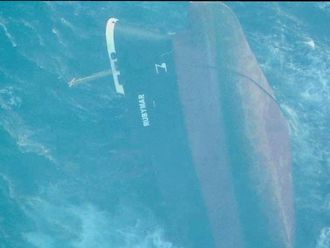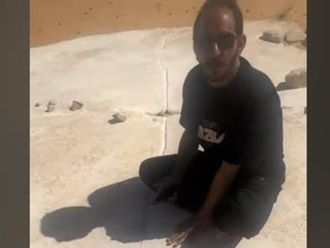
Al Mukalla: The killing of Saleh Al Sammad, Al Houthi movement’s key leader, in an air strike, is a major military victory for the Saudi-led coalition against Al Houthis. It also spells the crumbling of the Iran-backed militia, military and political analysts said. His death will lead to the collapse of Al Houthi defences in key contested areas across Yemen and prompt Al Houthi leaders to keep a low profile to avoid the coalition’s fighter jets.
Adel Al Shuja, a senior member of General People’s Congress and a political analyst, said Al Sammad’s death will have a major impact on Al Houthis’ ability to defend the areas under their control, like the port city of Hodeida, which is the target of a major offensive by Yemeni forces.
“It will demoralise Al Houthi militiamen on the battlefield, especially those fighting along the western coast,” Al Shuja told Sky News Arabia on Monday night.
The charismatic Al Sammad was sent to the strategic city of Hodeida, the last major coastal area held by Al Houthis, to drum up support from local people to push back a major offensive by thousands of soldiers led by General Tarek Mohammad Abdullah Saleh. Al Sammad appeared on Al Houthi media crisscrossing the city, holding meeting with local civilian and military figures and threatening to fight off Tarek’s forces. Al Shuja believes one of the biggest consequences of his death will be the “smooth” fall of Hodeida to the advancing government forces. “Al Houthis will suffer major setbacks on the western coast, which could herald the fall of Hodeida,” Al Shuja said.
For months, Al Houthi leaders like Al Sammad and Mohammad Al Houthi had travelled across the territories held by their group, arranging brazen military parades, inspecting battlefields and inciting people to fight their opponents. Al Shuja said senior Al Houthi leaders will go underground now to avoid the coalition’s air strikes. “They will return to their boltholes.”
Ali Al Bukhaiti, a former spokesperson for Al Houthis when they took over Sana’a in 2014, said the group has lost an important, well-connected figure who convinced powerful tribesmen to fight alongside the movement, including some supporters of Ali Abdullah Saleh, Yemen’s ousted president who was killed by Al Houthis in December. These tribesmen sought to severe ties with Al Houthis after their leader’s murder. “He held the movement together by preventing rifts within it,” Al Bukhaiti said, adding that Al Houthis have fabricated videos and concealed the deaths of many leading figures to show they are still strong and able to recruit new fighters. “They are trying hard to hide their defeats on the battlefield, mainly after the Tarek-led Republican Guards forces joined the fighting,” Al Bukhaiti told Al Arabiya Al Hadath.
Al Houthis swiftly appointed Mahdi Al Mashat as president of the Council. Al Mashat who served as a member of the Council and as the head of the Al Houthi chief’s office till 2014, is not as strong and influential as Al Sammad. “Al Mashat is a closed person who lacks connections,” Al Bukhaiti said.
Over the last couple of years, dozens of Al Houthis military leaders have been killed in clashes with Yemeni forces or in coalition strikes. In February, Al Houthis mourned the death of Taha Al Moudani, a member of Al Houthi’s Supreme Military Council. His death had remained secret for several months according to local media reports. Last week, two senior military commanders, including a ballistic missiles expert, were killed by coalition fighter jets.
Ebrahim Al Marie, a Saudi military expert, said Al Houthi leaders have become vulnerable to the coalition’s fighter jets. “The death of Al Sammad is an intelligence and operational success for the Saudi-led coalition,” he said on Twitter.












